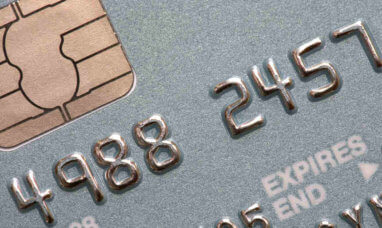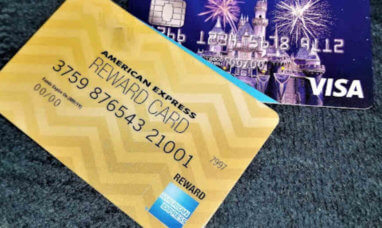A lot of people are confused about their credit card billing cycle. They don’t understand when purchases are added to the bill, when the bill is due, and when the interest starts to be added to the account.
It is extremely important to understand how credit card billing cycles work, so you can better budget and avoid interest charges.
One of the most important parts of the credit card billing cycle you need to understand is the credit card grace period.
What Is a Grace Period?
A grace period is a gap between the end of your credit card’s billing cycle (the last day purchases are added to that billing cycle) and when the payment is due. If you don’t pay your credit card bill in full by the end of the grace period, interest starts to accrue on the outstanding balance.
Your credit card issuer, by law, has to give you a 21-day grace period to pay the bill. That gives you enough time to know exactly how much you owe and pay it off.
Credit card forgiveness period is a grace period synonym you might hear. They mean the same thing, so if you hear that term, think grace period in your head to understand what someone is talking about.
How Billing Cycles and Grace Periods Work
The credit card billing cycle can be confusing. Every month your credit card statement has a due date, and that is the only thing most people pay attention to.
You should also be aware of the statement date, which is 21 days before the bill date. This is the date the credit card issuer takes a snapshot of your account, adds up all the transactions (including any payments made on the credit card), and creates your bill for the month.
Any purchases made after the statement date will appear on the next month’s credit card bill.
You should always pay your credit card bill in full before the due date every month. This keeps your credit score high and prevents you from paying interest.
If you don’t pay your bill in full every month, you will pay interest on the outstanding charges after the due date (e.g., after the 21-day grace period given by your credit card issuer).
Essentially, your credit card issuer loaned you money for those 21 days, and if they don’t get their money back before the grace period is over, they start charging you interest until you repay the loan.
An important thing to note is the grace period only applies to normal credit card purchases. If you take out a cash advance on your credit card, the interest starts accruing right away and is normally at a higher interest rate than a normal credit card purchase.
What Happens if You Don’t Pay Your Full Balance?
If you don’t pay your full balance by the end of the 21-day grace period, you’re charged interest on the outstanding balance. The interest starts being added to your account on the 22nd day and keeps adding up until you pay off your entire balance.
Best Credit Cards of February 2026
Am I Responsible for My Spouse’s Credit Card Debt?
If you’re responsible and pay your credit card bill in full every month, but your spouse carries a balance on their card, you might be concerned that you’re responsible for their debt.
The answer to whether or not you’re responsible for your spouse’s credit card debt is complicated. It depends on what state you live in, but in most states, you’re not responsible for their debt.
However, if you divorce or they pass away, the debt may become your responsibility.
If you live in a state where your spouse’s credit card debt is considered your debt as well, a credit card balance transfer between spouses may help your debt situation.
You could transfer your spouse’s high-interest credit card debt to a 0% APR credit card and pay off the debt without adding any more interest to the debt.
Doing this has an impact on both people’s credit scores, and you should do your research before transferring part of your spouse’s balance to your credit card.
When You Might Not Have a Grace Period
If you don’t pay your credit card balance in full by the due date, you are no longer entitled to a grace period.
For example, if you have a balance of $100 on your credit card after the grace period ends, interest on the $100 starts accruing the day after the grace period ends.
Additionally, any purchases you make during the billing cycle where you carry over a balance will start accruing interest immediately after the purchase is made.
This cycle continues until you pay your credit card bill in full. Only then will your 21-day grace period be reinstated on your account.
If you’re in this cycle, you may want to consider doing a balance transfer to another credit card you own in order to limit the amount of interest paid.
How a balance transfer to an existing credit card affects your credit score depends. It may temporarily lower your credit score if there is an increase in the utilization rate, but it can also increase your credit score if you pay your bills in full every month.
If you’re wondering how to pay off $35k in credit card debt, doing a balance transfer to an existing credit card with a lower interest rate may be a good strategy.
You Can More Than Double Your Grace Period
If you time your purchases right, you can extend your grace period longer than the standard 21 days.
To do this, you need to know when your billing cycle ends and begins. If you’re making a large purchase and need as long as possible to pay it off, make the purchase the day your billing cycle begins.
Using this strategy, you will have between 51 and 56 days to pay off that purchase interest-free.
For example, if your billing cycle runs from October 1st to November 9th, your due date for purchases made during that time period would be December 1st.
If you made a large purchase on October 1st (the day the billing cycle begins), you would have two full months to pay off the expense before you have to pay any interest.
Grace Periods on Loans
Loan grace periods are similar to credit card grace periods, but they each have their own grace period limit.
For example, student loans often have a 90-day grace period, and mortgages normally have a 15-day grace period.
Before you take out any loans, read the terms and conditions and understand what their grace period is.
A Word of Caution
The average American household has $6,270 worth of credit card debt. If you don’t have the money to pay off a purchase in full, you shouldn’t put the purchase on your credit card.
You’ll end up paying a lot of money in interest, and it will have a negative impact on your credit score.
Understanding your credit card’s billing cycle helps you make large purchases strategically and have longer to pay them off, but if you don’t have a plan on how you’ll pay them off, you shouldn’t make them.
Featured Image: Megapixl








